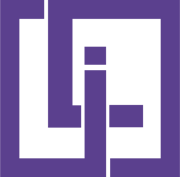
There are 1 Companies in Paraguay
that provide Go development Services!
Paraguay is the home of over 7 million people and has no access to oceans or seas. Not that this counts so much for the IT, but still, it could attract at least visitors. By far, the country’s main industries do not include tech or IT, but this doesn’t mean that the other industries are not using technology or software to ease the burden of processing goods.
Discover Top IT Companies in Paraguay specialized in Go and other related services. Find the best IT service providers for your projects.
Go, also known as Golang, is an open-source programming language created by Google. It is designed for simplicity, efficiency, and concurrency, making it a versatile choice for building a wide range of applications, from web services to system software.
Handpicked companies • No obligation to hire • 100% risk-free
Explore Top Go development Companies in Paraguay
Light-it is an award-winning digital product studio. We develop quality software solutions. Our clients range from fresh start-ups to leading Fortune...
Filter Go development Companies in Paraguay by Cities
Find the right tech company near you or from a specific city. Some of the best companies might be located in smaller cities.
Find more Go development companies around the world
TechBehemoths is the world's most advanced and user-friendly platform to match IT Companies with real clients without hustle.
The ICT in Paraguay: Overview and Companies Data
Paraguay is the home of over 7 million people and has no access to oceans or seas. Not that this counts so much for the IT, but still, it could attract at least visitors. By far, the country’s main industries do not include tech or IT, but this doesn’t mean that the other industries are not using technology or software to ease the burden of processing goods.
Paraguay is mostly an agricultural country, with a long tradition of soybean cultivation - now the 2nd largest exporter in the world of the same soybeans. However, Agrotech is what makes other industries closer to the digital revolution; the countries around have already approached and adopted it.
So, if there is not much to talk about IT, why should you work with Paraguayan IT companies?
Why Work with Paraguayan IT companies
First, not many IT companies and software agencies that exist in Paraguay are mostly focused on BPO. With the government that struggles to support the digitalization of other industries, these companies, and especially the experience of the workforce, are extremely valuable for the country.
The tax rates for all companies have been for a long time now, only at 10%. This means that the low prices the IT companies ask for can be even lower due to this reason. Of course, in the neighborhood, you can already see a lot of digital parks and communities where the IT sector is spared from paying taxes, but for the country’s economy, 10% is good enough.
What You Should Be Aware of When Working With Paraguayan IT Companies
With all the advantages and disadvantages, even if you choose to work with Paraguayan IT companies, there are several things you should consider.
First of all, it’s about language barriers. You may meet many tech workers, skilled professionals, and project managers working for local companies that may have several issues with talking in languages other than Spanish. In other words, English may be a challenging option for communication.
Time differences - Consider the time zones you and the partner IT company are located in. It may be challenging as well to sync the work process and establish effective cooperation, while both of you are in different parts of the globe.
Professionalism - like in any other country, some companies perform well, better, and the best. You can meet all of them in Paraguay. However, finding the best one requires paying attention to several key points such as experience, number of employees, portfolio, hourly rates, and others.
How Reliable Are Paraguayan IT Companies
In terms of reliability, Paraguay doesn’t rank in any way. It may vary from company to company and project to project since there is no standard for the country’s profile. We suggest studying each company individually and checking the reviews for detailed information about this one.
How Does the Paraguayan IT Industry Relate to the Neighboring Countries?
Bolivia, Brazil, and Argentina have some of the most developed IT industries in LatAm. This means that the entire region can and could impact Paraguay’s IT infrastructure and local companies’ performance overall. However, Paraguay never focused too much on developing the IT industry and remains an Agricultural country. In the long-term perspective, Paraguay could reach a certain level of development that would attract the client’s attention to the country from another point of view. But so far, the country’s IT industry serves as a BPO, and in the near future is very likely to remain in this position.
Discover top IT Companies in Paraguay specialized in web development, software development, web design, UI/UX design, digital marketing, branding, and more.
What is Go and what are its benefits for your projects?
Go, also known as Golang, is an open-source programming language created by Google. It is designed for simplicity, efficiency, and concurrency, making it a versatile choice for building a wide range of applications, from web services to system software.
More than 363 verified IT companies leverage Go in their development projects. These companies range from startups to tech giants like Google, Uber, and Dropbox. They appreciate Go's speed, reliability, and ease of use for building scalable and performant software.
Go service providers rely on various tools and technologies to enhance their development process. Some commonly used tools include the Go compiler, which transforms Go code into executable binaries, and the Go standard library, which offers essential packages for building applications. In terms of deployment, containerization technologies like Docker are frequently used to package Go applications for consistency and portability.
You may be wondering, how is Go Different from C, Rust, and Java. So, below we’ll try to show you more about the differences that exist between them:
-
Go vs. C: While both Go and C are low-level languages, Go offers modern features like garbage collection and memory safety, which simplify programming. Go is also more concise and expressive than C, making it easier to read and maintain. But if you think your business needs companies that also specialize in C, you can find them on this page
-
Go vs. Rust: Rust emphasizes memory safety and control without sacrificing performance. While Go offers simplicity and readability, Rust provides fine-grained control over memory and is suitable for systems programming with a focus on safety.
-
Go vs. Java: Java is a high-level language often used for building enterprise-level applications. It relies on a virtual machine (JVM) and is known for platform independence. Go, on the other hand, compiles native code, offering better performance and efficiency for certain use cases.
Languages related to Go in terms of use cases and features include Python, Ruby, and Node.js. These languages, like Go, are suitable for building web services and backend applications and are known for their developer-friendly features. If you need these programming languages in addition or instead of Go, just click on their corresponding words above to find verified vendors providing those services.
When selecting IT companies that use Go for your project, consider factors such as the company's experience with Go, their portfolio of past projects, client references, and their understanding of your specific project requirements. Look for companies that align with your project's complexity, scalability needs, and budget.
Go service providers are essential for various project types, including:
-
Web Services: Go is well-suited for building RESTful APIs and microservices due to its excellent performance and simplicity.
-
Networking Applications: Go's concurrency support makes it ideal for developing network-related software such as servers and proxies.
-
Cloud Applications: Go's efficiency and speed are valuable for building cloud-native applications and serverless functions.
-
System Software: Go can be used for developing system utilities, command-line tools, and operating system components.
Go is a versatile language, and its speed, simplicity, and efficient concurrency model make it suitable for a wide range of projects, making it an excellent choice for modern software development.
